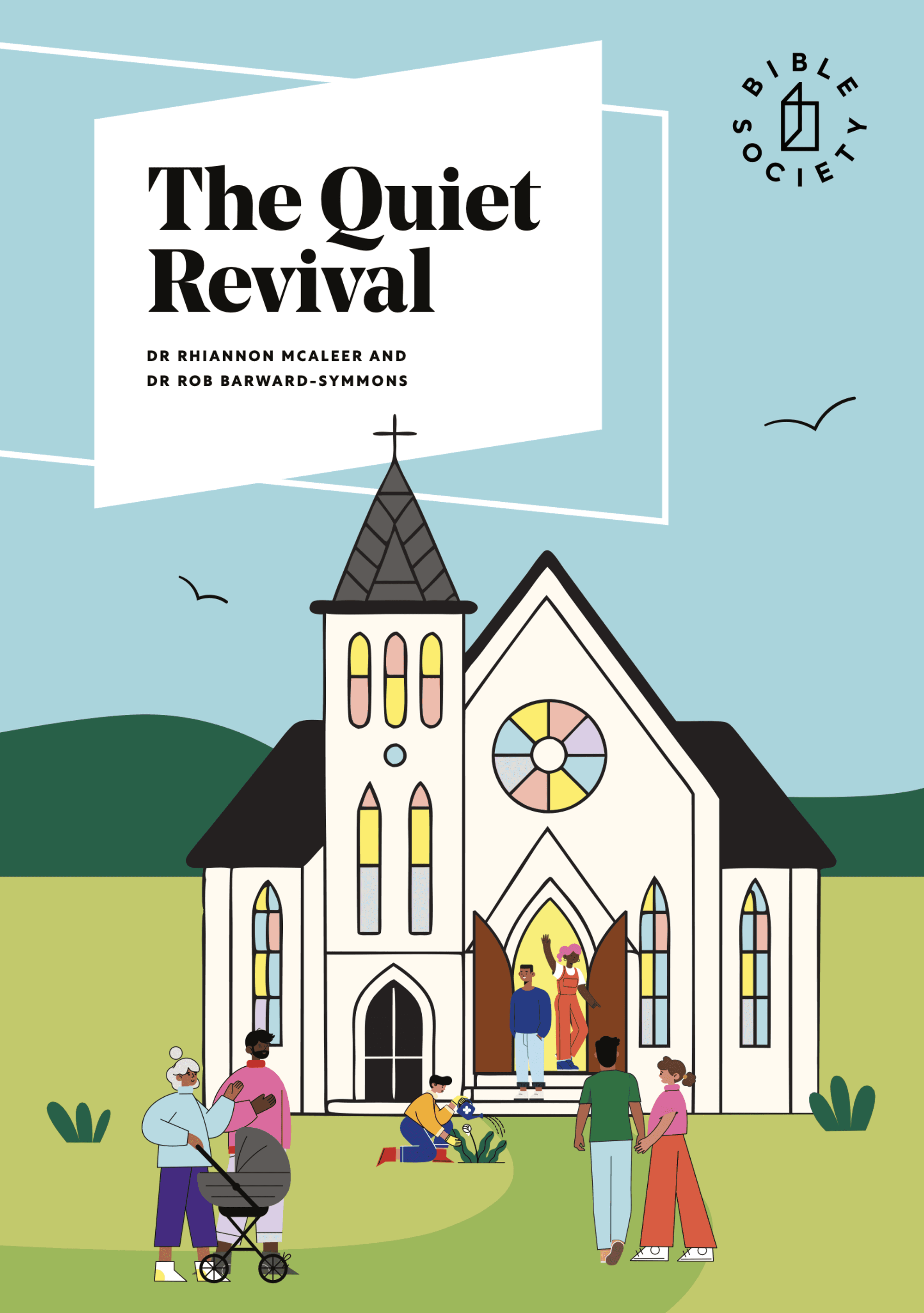In their latest research, Bible Society have identified a Quiet Revival – the Church in England and Wales is in a period of rapid growth. But, most excitingly for us here at Youthscape, this rapid growth is being driven by young people, particularly young men! Read on as we share the key findings and some of our thoughts about what this might mean for youth ministry.
On Tuesday 8 April, Bible Society published their report The Quiet Revival. This report provides evidence of a period of rapid growth within the Church by drawing on two nationally representative data sets – a 2018 YouGov survey of 19,101 adults in England and Wales and a 2024 YouGov survey of 13,146 adults. This overarching finding challenges long-held predictions about the future of Christianity and we’re not the only ones who are surprised. Whilst there have been regular reports of pockets of revival, the concern around the declining numbers of young people in the Church has been pronounced. But this report means our hope for more young people to be in our Churches and coming to know Jesus is no longer anecdotal but a reality that is now grounded in robust evidence…
The report draws out 10 key findings which characterise the Quiet Revival…
- The Church is growing, and it’s being driven by 18–24-year-olds (Gen-Z) – the second most likely age group to attend church regularly
- The Church is becoming more diverse – just under 1 in 5 churchgoers are from an ethnic minority, which rises to 1 in 3 when looking at 18-24-year-olds
- There is evidence of an active and vibrant Church – 67% of churchgoing Christians read the Bible at least weekly outside of Church
- Christianity increasingly involves an active commitment rather than a passive cultural label – nominal Christianity is rapidly declining
- 18-24-year-olds are showing above-average engagement in spiritual practice – 40% say they pray at least monthly
- Churchgoers show the lowest reports of feeling anxious and depressed
- Churchgoers are more likely to desire social change and to engage in social activism and activities (e.g., more likely to volunteer, donate to foodbanks, and give to charitable causes)
- Young Christians report finding the Bible more challenging than older Christians and their confidence in their faith / the Bible is more likely to be shaken by media and British culture
- There is an openness even among non-churchgoers towards Christianity and the Bible – 31% of non-churchgoers say they would attend church if invited by a friend (rising to 34% amongst 18-24-year-olds)
- There are 4 recommended steps for action:
- Policymakers and opinion-formers need to take more account of the existence of churchgoing Christians in society
- The Church should work on increasing Bible discipleship to grow Bible confidence
- The Church should engage in intergenerational conversations to enable churchgoers to learn from one another’s wisdom
- The Church should recognise the importance and impact of authentic personal relationships
In short, young people are in Church and those who are not are more open to Christianity and the Bible than we think. Perhaps a few years after the world of youth ministry began to ride the wave of decline, urgently responding in the process, the tide is turning (or has already turned)?
Identifying a Quiet Revival led by young people (Gen-Z) feels like a seismic finding. One that we have all been praying for and urgently working toward. The report acknowledges that the ‘most intriguing question which follows from all this data is why this generation are more engaged’ and to understand this further, more research and reflection is required. They suggest there might be two interlinking factors: a change of climate (the perception of Christianity has shifted from hostility to apathy and now openness) and the quest for belonging (a generation significantly affected by poor mental health are finding the Church as a place for healing and community).
However, we have also been reflecting on another possible reason…In 2018, when the first Bible Society data set was collected, the 18-24-year-olds included within the 2024 data would have been in our youth groups aged 12-18-years-old. Whilst too young to answer the survey in 2018, it is reasonable to assume that this age group were some of the first beneficiaries of Christian youth work which was beginning to respond to the ‘generational catastrophe’ seen in emerging Church attendance data with a sense of urgency and purpose.
So, what if this Quiet Revival is also the result of high-quality Christian youth work which, by responding urgently to the decline of young people in church, has raised up a generation who are more likely to either be in Church with an active faith or open to Christianity?
To make such claims evidence-based, further research is required. But ultimately, the results feel hopeful and promising. They offer a new momentum for youth workers as we see a new generation emerge out of our youth groups with…
‘a fresh openness from non-churchgoers – and in particular young people – to encountering Christianity, the Church, and the Bible. At the same time these churchgoers are not detached from wider society but are actively seeking to make a positive difference in their communities, both locally and more widely. While many had sensed that there was something different about this generation of young adults, and stories of new believers have not been uncommon over the past few years, this is the first time that this movement of God across England and Wales has been evidenced’ and in such stark numerical terms!

You can download the full report for free here - https://www.biblesociety.org.u...


